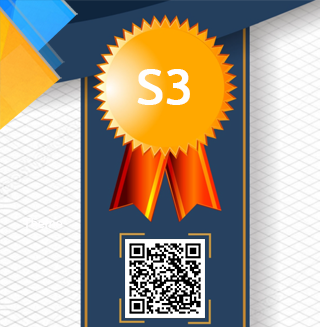Analysis of Test, Tracing and Isolation (TLI) Implementation with Case Study Methods in the Context of Accelerating COVID-19 Prevention and Control at Pekanbaru City Health Center
DOI:
https://doi.org/10.25311/keskom.Vol9.Iss1.1375Abstract
Coronavirus disease 2019 (COVID-19) is an infectious disease caused by Severe Acute Respiratory Syndrome Coronavirus 2 (SARS-CoV-2). SARS-CoV-2 is a new type of coronavirus that has never been found in humans before. Pekanbaru City in carrying out the COVID-19 response in accordance with the COVID-19 Handling Guidelines issued by the Indonesian Ministry of Health in 2020, the 5th revision, including implementing the 3T (Testing, Tracing, and Treatment) program. Based on the tracing number data on August 24, 2021, 1: 4.67, it means that for every 1 positive confirmed case, there are only 4 to 5 people whose close contacts are traced and tested. The purpose of this study is to know the results of the Analysis of the Implementation of Test, Trace, and Isolation (TLI) in the Context of Accelerating the Prevention and Control of COVID-19 at Public Health Centers in Pekanbaru City. This type of research is a quantitative and qualitative design with a case study approach. The sample selection of this research was purposive sampling, with a total sample of 20 which included 10 health centers in the city of Pekanbaru with informants including the doctor in charge and surveillance officers. Data collection was carried out by Focus Group Discussion with homogeneous informants with data analysis with content analysis. Testing has been carried out according to the guidelines for handling Covid-19 with close contact and symptoms. Tracing is still low, not in accordance with the provisions of the Ministry of Health and WHO 15, but still, an average of 3-4 people are being traced. Isolation in health services is low when compared to self-isolation at 5.2%. There is a need for integrated coordination between surveillance personnel and operators in an effort to reduce the number of Covid-19 cases and minimize the CFR/mortality rate.
Downloads
References
Kemenkes RI (2020) Pedoman Pencegahan Dan Pengendalian Coronavirus Disease (Covid-19).
Keputusan Menteri Kesehatan Republik Indonesia Nomor HK.01.07/MenKes/413/2020 tentang Pedoman Pencegahan dan Pengendalian Coronavirus Disease 2019 (COVID-19). Jakarta; 2020. Available from: https://infeksiemerging.kemkes.go.id/
Pane M, Windyaningsih C (2020). Pedoman Teknis Surveilans Epidemiologi di Puskesmas dan Dinas Kesehatan dalam Pengendalian Pandemi COVID-19. Jakarta: Kementerian Kesehatan RI; 2020.
WHO. (2021). Update Case coronavirus disease (COVID-19).. https://www.who.int/publications-detail/
Dinkes Provinsi Riau, 2021. Update Kasus Covid-19.Dinkes Riau
Kemenkes RI (2021) Pedoman Pemeriksaan, Pelacakan, Isolasi dan KarantinaPencegahan Dan Pengendalian Coronavirus Disease (Covid-19). Kemenkes RI
Rembulan, G. D. et al. (2020) ‘Kebijakan Pemerintah Mengenai Coronavirus Disease (COVID-19) di Setiap Provinsi di Indonesia Berdasarkan Analisis Klaster’, JIEMS (Journal of Industrial Engineering and Management Systems), 13(2). doi: 10.30813/jiems.v13i2.2280.
Susilo, A. et al. (2020) ‘Coronavirus Disease 2019: Tinjauan Literatur Terkini’, Jurnal Penyakit Dalam Indonesia, 7(1), p. 45. doi: 10.7454/jpdi.v7i1.415.
WHO. (2020). Global Surveillance for human infection with coronavirus disease (COVID-19). Interim Guidance, February, 27–29. https://www.who.int/publications-detail/global-surveillance-for-human
Yuliana (2020) ‘Corona virus diseases (Covid -19); Sebuah tinjauan literatur’, Wellness and healthy magazine, 2(1), pp. 187–192. Available at: https://wellness.journalpress.id/wellness/article/view/v1i218wh.
Chen N, Zhou M, Dong X, Qu J, Gong F, Han Y, et al. Epidemiological and clinical characteristics of 99 cases of 2019 novel coronavirus pneumonia in Wuhan, China: a descriptive study. Lancet [Internet]. 2020;395(10223):507–13. Available from: http://dx.doi.org/10.1016/S0140-6736(20)30211-7
Gatenia,Shabrina & Artha Prabawa (2021). Model Sistem Pendataan Contact Tracing COVID-19 Berbasis Mobile dan Web. Preventia: Indonesian Journal of Public Health, Vol. 6, No. 1. http://journal2.um.ac.id/index.php/preventia/article/view/24019
Sakina, Annisa Nida et al. (2021). Aspek Manajemen Dalam Kegiatan Surveilans Epidemiologi Covid-19 Di Puskesmas Dharmarini Kabupaten Temanggung. Jurnal Manajemen Kesehatan Indonesia, Vol. 9, No. 3 https://ejournal.undip.ac.id/index.php/jmki/article/view/42250
Bezerra, C. B., Saintrain, M. V. de L., Braga, D. R. A., Santos, F. da S., Lima, A. O. P., Brito, E. H. S. de, & Pontes, C. de B. (2020). Psychosocial impact of COVID-19 self-isolation on the Brazilian population: a preliminary cross-sectional analysis. Saúde Soc. São Paulo, 29(4), 1–10. https://doi.org/10.1590/S0104-12902020200412
Suhardin,Saverinus, Ferry Efendi, Siti Nur Kholifah (2021). Kebutuhan pasien COVID-19 selama isolasi mandiri: Literature Review. Vol.7 Issue 3. Page 123-131. DOI http://dx.doi.org/10.30659/nurscope.7.2.123-131
Sutaryono, Nurul Hidayati, Heru Subaris Kasjono (2021). Pelaksanaan Isolasi Mandiri COVID-19 : Studi di Kasus DI Yogyakarta – Jawa Tengah Indonesia. Vol.4. Prosiding Seminar Nasional UNIMUS. https://prosiding.unimus.ac.id/index.php/semnas/article/viewFile/949/956
Hager E, Odetokun IA, Bolarinwa O, Zainab A, Okechukwu O, et al. 2020. Knowledge, attitude, and perceptions towards the 2019 Coronavirus Pandemic: A bi-national survey in Africa. PLOS ONE, [online] 15(7). https://doi.org/10.1371/journal.pone.0236918
Rannan-Eliya, R.P., Wijemunige, N., Gunawardana, J.R.N.A., Amarasinghe, S.N.,Sivagnanam, I., Fonseka, S., Kapuge, Y. and Sigera, C.P., 2021. Increased‘Intensity Of PCR Testing Reduced COVID-19 Transmission Within Countries During The First Pandemic Wave:Study examinesincreased intensity of reverse transcription–polymerase chain reaction (PCR) testing and its impact on COVID19 transmission’, Jurnal Health Affairs, pp.10-1377.
Downloads
Submitted
Accepted
Published
How to Cite
Issue
Section
License
Copyright (c) 2023 Jurnal Kesehatan Komunitas

This work is licensed under a Creative Commons Attribution-NonCommercial-ShareAlike 4.0 International License.





























